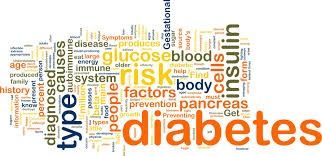I Have Yet Another Question - Blood Glucose Requirements In Passing A DOT Physical?
Topic 18378 | Page 1
I don't think they test for that. They do test for sugar in urine, but i don't know what the limit is. I guess there's not supposed to be any?
The first question to ask is - ARE YOU DIABETIC? Oral meds or INSULIN?
If you are on INSULIN - you will need to go through a WAIVER PROCESS.
If you are on oral meds - you will need a letter from the prescribing physician (preferably an ENDOCRINOLOGIST - in fact, many medical examiners REQUIRE it be an Endo) describing the medications you are taking, that your blood sugars and stable and well maintained, and that your condition does not prevent you from operating a CMV safely.
This doctor has some pretty detailed writeup on DOT Medical Guidelines for Diabetes:
https://www.linkedin.com/pulse/dot-medical-guidelines-diabetes-dr-michael-tigges (link won't post as a link - copy & paste).
If you are diagnosed Type-II and are on oral meds, you are also going to want to show up with a RECENT Hemoglobin A1C result. If you have sugar in your urine - you will be made to take an RBT (Random Blood Test) and if your RBT is less than 250, you will get a 3 month card, so you can get the number down. If it is MORE than 250 - you will be disqualified and NOT GET A MED CARD.
Likewise - if your A1C is higher than 12% - NO CARD. Lower than 10% - 3 month card.
If you get (or have) your diabetes under control with oral meds - you will get a 1 year card.
Essentially - if you are HIGHER than 6.7% - and your sugars are not controllable via oral meds - you are LOOKING AT THE NEEDLE.
I can tell you honestly - at 5'5"/300lbs - my A1C was 6.5. Doctor told me if I didn't lose weight and change my habits, I would be on the needle within a year. Once you've burnt your pancreas out that bad - the odds of getting OFF THE NEEDLE are nearly impossible. I lost 120 lbs - and my A1C's haven't gone above 5.6.
Rick
DOT:
Department Of Transportation
A department of the federal executive branch responsible for the national highways and for railroad and airline safety. It also manages Amtrak, the national railroad system, and the Coast Guard.
State and Federal DOT Officers are responsible for commercial vehicle enforcement. "The truck police" you could call them.
CMV:
Commercial Motor Vehicle
A CMV is a vehicle that is used as part of a business, is involved in interstate commerce, and may fit any of these descriptions:
- Weighs 10,001 pounds or more
- Has a gross vehicle weight rating or gross combination weight rating of 10,001 pounds or more
- Is designed or used to transport 16 or more passengers (including the driver) not for compensation
- Is designed or used to transport 9 or more passengers (including the driver) for compensation
- Is transporting hazardous materials in a quantity requiring placards
I don't think they test for that. They do test for sugar in urine, but i don't know what the limit is. I guess there's not supposed to be any?
NO SUGAR in urine allowed.
There are certain newer oral diabetes meds that lower blood sugar by excreting glucose in the urine - if you are on one of these, there will be glucose present in your urine.
Docs will have to rely on statements from your specialist, and your A1C tests.
Rick

Rick, Thank you so much for your reply. My son informed me today that he was diagnosed with type II diabetes. It kind of raised concerns about myself. I stopped by my local Walmart Pharmacy on my way home this evening and got a free screening. Blood flash was 89 and A1c 5.3.

DOT MEDICAL GUIDELINES -DIABETESDOT MEDICAL GUIDELINES -DIABETES

The Department of Transportation (DOT) Medical Examination is very highly regulated as illness complications can have serious consequences for the driver, the examiner, and the general public. DOT medical guidelines outline the health criteria that commercial vehicle drivers must meet to qualify for certification. One health condition that is closely reviewed by the DOT is diabetes. Individuals with known or suspected diabetes are required to provide specific medical information to the DOT-certifying physician regarding diabetic control. The DOT definition of diabetic control often causes confusion for individuals seeking certification, as well as their employers. The following information provides answers to common questions and clears up misconceptions about diabetes and DOT certification. The maximum certification for a person with diabetes is one year. According to DOT guidelines, a person with diabetes, whether controlled with diet alone or diet plus medication, must meet the following criteria: •Maintain a glycosylated hemoglobin (Hemoglobin A1C or “HBA1C”) of 10% or less.
The HBA1C is a measure of the average amount of sugar in the blood over the last 3 months. A normal HBA1C is less than 5.7%. Values between 5.7 and 6.4% are classified as being in the pre-diabetic range. These individuals should be closely monitored. If the level is above 6.4%, then the person is diabetic. The HBA1C correlates very well with end organ (blood vessels, nerves, kidneys, heart, or eyes) damage and therefore is a popular marker for disease control. Red blood cells have a lifespan of about 90 days before they are removed by the spleen. Glucose sticks to the hemoglobin in red blood cells. Therefore, the glycosylated hemoglobin can be a good estimate of the average blood sugar and is much more accurate in assessing diabetic control than a fasting blood sugar that varies from day to day. Obviously, it takes about 3 months for the HBA1C to drop, generally by 1 percentage point. •The driver must not have a history of the following:
(a) One or more hypoglycemic episodes in the past 12 months, or 2 or more occurrences in the past 5 years resulting in:
1. Seizure
2. Loss of Consciousness
3. Need for Assistance from another person
4. Period of Confusion
(b) Signs of End Organ Damage: 1. Retinopathy 2. Macular Degeneration 3. Peripheral Neuropathy 4. Congestive Heart Disease 5. Stroke 6. Peripheral Vascular Disease 7. Kidney Failure
Diabetic individuals seeking DOT certification must provide current (within six months) diabetic control information to the examining physician. This information should be available as part of routine diabetes care through the individual’s primary care physician. To avoid delays in certification, SameDayDOT Physical Drug & Alcohol Testing recommends individuals meet with their primary care physician in advance of the examination to obtain copies of the required laboratory information, then bring that information to the DOT appointment. Diabetics who require insulin for control cannot be approved for DOT certification unless they have a waiver. The diabetic waiver application and program details can be found on the Federal Motor Carrier Safety Administration website. The process for obtaining a waiver is cumbersome and only a small number of drivers have received this exemption since the waiver program was instituted in 1996. “These medical guidelines can be quite complex,” says Michael Tigges, DC, Nationally Registered Certifed Medical Examiner. “The DOT team at Same Day DOT Physical Drug & Alcohol Testing understands the DOT regulations and their importance in promoting driver health, wellness and public safety. We are always available to answer any questions
All drivers diagnosed with diabetes must bring a printed copy of their most recent hemoglobin A1C from his or her primary care physician. This lab value must be 10% percent or less and be done within the last 3 months. The driver will receive a one year certificate if cleared. If the A1C levels are between 10-12% then the driver will receive a 3 month certificate. If, after 3 months, the new AIC levels are 10% or less at the end of the 3 months, the driver will receive a 9 month certificate based on the previous physical exam.
If the driver does not have the lab results available or his or her urine is positive for sugar, a random blood test (RBT) will be done. If this is 250 or less the driver will receive a 3 month certificate in which he should see his primary care physician and obtain an AIC lab. Once he or she returns with the report and it is less than 10% then 9 months will be added to your medical certification expiration date.
INSULIN
Insulin is used to treat high blood sugar in diabetes. Insulin has the potential to cause very low blood sugars which can cause drivers to black out or go into a coma; therefore diabetic drivers who require insulin for treatment cannot be approved for DOT certification without an Diabetes Exemption. More information is available through the FMCSA through the Federal Diabetes Exemption Program at:
http://www.fmcsa.dot.gov/documents/safetyprograms/Diabetes/diabetes-exemption-package0706.pdf.
CSA:
Compliance, Safety, Accountability (CSA)
The CSA is a Federal Motor Carrier Safety Administration (FMCSA) initiative to improve large truck and bus safety and ultimately reduce crashes, injuries, and fatalities that are related to commercial motor vehicle
FMCSA:
Federal Motor Carrier Safety Administration
The FMCSA was established within the Department of Transportation on January 1, 2000. Their primary mission is to prevent commercial motor vehicle-related fatalities and injuries.
What Does The FMCSA Do?
- Commercial Drivers' Licenses
- Data and Analysis
- Regulatory Compliance and Enforcement
- Research and Technology
- Safety Assistance
- Support and Information Sharing
DOT:
Department Of Transportation
A department of the federal executive branch responsible for the national highways and for railroad and airline safety. It also manages Amtrak, the national railroad system, and the Coast Guard.
State and Federal DOT Officers are responsible for commercial vehicle enforcement. "The truck police" you could call them.
Dm:
Dispatcher, Fleet Manager, Driver Manager
The primary person a driver communicates with at his/her company. A dispatcher can play many roles, depending on the company's structure. Dispatchers may assign freight, file requests for home time, relay messages between the driver and management, inform customer service of any delays, change appointment times, and report information to the load planners.Fm:
Dispatcher, Fleet Manager, Driver Manager
The primary person a driver communicates with at his/her company. A dispatcher can play many roles, depending on the company's structure. Dispatchers may assign freight, file requests for home time, relay messages between the driver and management, inform customer service of any delays, change appointment times, and report information to the load planners.OWI:
Operating While Intoxicated
DOT MEDICAL GUIDELINES -DIABETESDOT MEDICAL GUIDELINES -DIABETES
What's funny there Doc - is I almost always link to your "Linked In Article", when we discuss diabetes here...
Rick
DOT:
Department Of Transportation
A department of the federal executive branch responsible for the national highways and for railroad and airline safety. It also manages Amtrak, the national railroad system, and the Coast Guard.
State and Federal DOT Officers are responsible for commercial vehicle enforcement. "The truck police" you could call them.

For about $15, you can buy a urine test kit at a CVS or other drug store. That will give you a general idea of where your urine is on several of the tests for the DOT medical exam. It wont be as accurate, but it may help you know where you are at.
DOT:
Department Of Transportation
A department of the federal executive branch responsible for the national highways and for railroad and airline safety. It also manages Amtrak, the national railroad system, and the Coast Guard.
State and Federal DOT Officers are responsible for commercial vehicle enforcement. "The truck police" you could call them.

Thanks Doc. I really am glad you posted since I am type II and needed that info as I was under some false impressions and thought I would be OK. I have a doctor's appointment next week and am going to ask for a referral to an endocrinologist. I am sorta sick of playing around with my PCP. She hasn't tested my A1C in well over a year and a half. I am also bookmarking this post.
New Reply:
New! Check out our help videos for a better understanding of our forum features

















Preview:








 TT On Facebook
TT On Facebook
What are the blood glucose requirements in passing a DOT physical? Any information would be greatly appreciated.
DOT:
Department Of Transportation
A department of the federal executive branch responsible for the national highways and for railroad and airline safety. It also manages Amtrak, the national railroad system, and the Coast Guard.
State and Federal DOT Officers are responsible for commercial vehicle enforcement. "The truck police" you could call them.